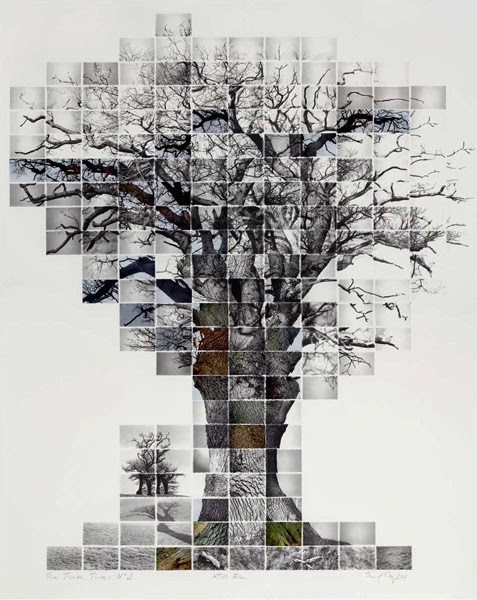Asking the right question is very important. Given that nature unfolds in wholeness and order, and that the human species evolved from and in nature, how is it that man could become such a force of fragmentation and disorder?
 Early on, I felt that one of the core premises of most scientists—that order emerged from disorder in the universe–was mistaken.
Early on, I felt that one of the core premises of most scientists—that order emerged from disorder in the universe–was mistaken.
On earth, life is not the emergence of order from disorder, but order from order—until man. Man is disorder from order. How can that be?
Our conception of order and disorder is the cornerstone of our worldview. That’s true whether we are aware of our basic philosophical premises, or they operate at a subconscious level.
Physicists speak to each other in the language of mathematics. If a philosopher doesn’t speak that language, he or she is at a disadvantage in understanding and discussing the tremendous discoveries that have been made and are being made in physics.
Mastery of the language of mathematics tends to render verbal language unintelligible, or at least less intelligible in the translation. Few physicists since Einstein have been able to speak both languages eloquently.
Be that as it may, the question of order in nature and disorder in man is perhaps the most important and certainly the most pressing question and contradiction facing both science and philosophy.
Of course, many scientists and philosophers would say that I have it backwards, that humans bring order. Most would say that when considering the evolution of the universe since the Big Bang, the story is one of order slowly gaining ground over disorder and chaos.
But can order evolve out of disorder? Or is it a matter of different kinds of order evolving out of preceding types of order?
Cosmic and terrestrial evolution proceeds from simplicity to complexity and from energy to entropy, not from disorder to order. Clearly evolution, whether of stars or life, unfolds as order from order, not order from disorder. There is no such phenomenon, anywhere.
But there is the reverse—disorder from order—in one place. Man.
In using the word man I’m being neither misanthropic nor misogynistic. I’m referring to the species that is decimating this planet, the species that hasn’t changed essentially in tens of thousands of years, since the emergence of ‘modern humans’ in Africa.
That’s when modern humans exploded onto the scene with our cognitive tool kit. That’s when sophisticated languages, tools and cultures emerged.
Man is the separating animal. We ‘remove and make ready for use.’ That’s the literal meaning of separation.
Such an adaptation is obviously enormously powerful; it has enabled our species, in the blink of an eye evolutionarily, to completely dominate almost every ecosystem on earth.
But it carries with it a great danger, as yet addressed, even by eminences such as E.O. Wilson, who at 85 has just come out with his latest book, “The Meaning of Human Existence.” The danger is that a utilitarian function is carried over into the psychological realm. Is that mistake, or “original sin,” inexorable in the evolution of higher thought?
Perhaps. Separation/manipulation of the environment is such a powerful, game-changing adaptive leap that we humans subconsciously assumed that it was the way nature operates. Science still does for the most part. It isn’t. Mentally being able to remove things from nature, and then believing they are separate, is the root of human alienation from nature, each other and the wholeness and sacredness of life.
E.O. Wilson says we are “a biological species in a biological world.” That states the obvious, but begs the question. How could a single biological species evolve the power to destroy the biological world at a rate worth describing as “the Sixth Extinction?”
biological species evolve the power to destroy the biological world at a rate worth describing as “the Sixth Extinction?”
Not having insight into the nature and place of symbolic thought, the human mind, like the Sorcerer’s Apprentice, is unable to stop separating, dividing and fragmenting.
Scientists, and the vast majority of philosophers think that more knowledge is the solution. But knowledge, even pure scientific knowledge, is a product of our cognitive abilities.
Therefore, like thought itself, it a question not of how much knowledge we have, but of how knowledge is used. That requires a different capacity—insight and wisdom.
Evolution conferred capabilities on humans that we have yet to understand. Neuroscience and artificial intelligence cannot solve the problem or meet the challenge. As long as we don’t have insight into the mind and ourselves, they will only make the crisis of man’s consciousness more acute.
The silent mind, the mind in meditation, does not divide, allowing insight and wisdom to flourish.
Physicists now believe that time and space are emergent properties in the universe. That means space-time itself comes out of some unseen and unknown background of order. What is that background?
Is it death? Not death we know and usually fear it, our personal end, but death as the perpetual ground and mystery: Infinitely present, timeless and creative.
Martin LeFevre

